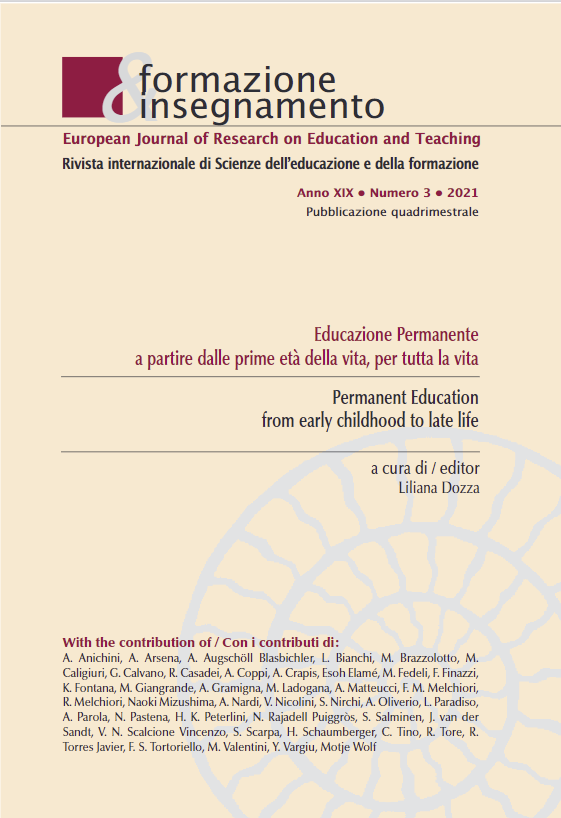School at the focal point of language policy: From the national battles for dominance of the past to the current challenges of the migration society
DOI:
https://doi.org/10.7346/-fei-XIX-03-21_05Abstract
School – as a social space – is embedded into socioeconomic, cultural, ideological, religious and political conditions and power relationships (see Peterlini, 2016a, p. 32). In a research project of the Free University of Bozen/Bolzano, conducted by the writing team of this article, the creation- and development-history of rural and peripheral schools was analyzed considering the interaction of the before mentioned conditions and their role in the foundation, the golden age and, often, the final closure of schools (Augschöll & Peterlini, 2020). The project covered three areas in South Tyrol, characterized by a “border location”: Oberer Vinschgau, an area positioned at the Swiss border, the remote mountain villages in the valley Sarntal and the area – focused on in this article – at the German-Italian linguistic border in the valley Unterland. Using a historical viewpoint, the article aims to illustrate the different power dynamics and educational developments in ethnicized and multilingual areas. In the second part of the article, the same analysis is related to the challenges of the present-day migration society.
Downloads
Published
How to Cite
Issue
Section
License
Copyright (c) 2021 Pensa MultiMedia

This work is licensed under a Creative Commons Attribution 4.0 International License.
Formazione & insegnamento is distributed under Attribution 4.0 International (CC BY 4.0).
For further details, please refer to our Repository & Archiving Policy, as well as our Copyright & Licensing Terms.





